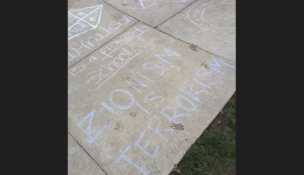Cases can transfer to tribal court
By: dmc-admin//May 11, 2009//
Postjudgment proceedings involving modifications to child support, custody, and placement will soon be transferable from Wisconsin circuit courts to tribal courts without a hearing.
Pursuant to Rule 801.54, adopted by the Wisconsin Supreme Court in 2008, and effective Jan. 1, 2009, courts have already had discretion to transfer any civil action if the court finds that concurrent jurisdiction is present.
But that rule requires notice and a hearing before transfer occurs.
At a May 1 administrative conference, the court adopted an amendment to the rule for family law cases that would dispense with a hearing if no party objects.
However, the court added three provisions to the proposed amendment, which will be numbered subsec. (2)(m) in the rule.
First, the circuit court would have to make an explicit finding that the state court and the tribal court have concurrent jurisdiction over the matter.
Second, the court would have to send a detailed notice to the parties, explaining the consequences of failure to object to transfer.
Third, it adds a provision that, absent any objection from the parties, transfer will occur unless good cause exists not to transfer the case.
The impetus for the rule change is federal law permitting government entities to receive federal funding for their efforts in collecting child support. Prior to 1996, only states could receive such funding, but an amendment that year changed the law to make tribes eligible also.
The Oneida Indian Nation has since added a child support enforcement agency to its judicial system, but sought the change to ease transfer of cases to its tribal court. More than 1,500 family law cases in Brown County alone, and 4,000 statewide, are believed to be eligible for transfer to tribal court pursuant to the rule.
James R. Botsford, an attorney with Wisconsin Judicare in Wausau, said the amendment was necessary to effect the original purpose of Rule 801.54.
Botsford said, “The caseload that could be transferred is so large that to hold a hearing in each case would have been cost-prohibitive to the counties. The idea is to streamline the process and use common sense where a case should properly be venued.”
Dissents
When the initial rule was adopted last summer, Justice Patience Drake Roggensack dissented, in an opinion joined by Justices Annette Kingsland Ziegler and David T. Prosser.
Roggensack’s dissent argued that the rule change exceeded the court’s authority by infringing on the substantive rights litigants, in violation of sec. 751.12(1).
Roggensack also objected that the rule undermines litigants’ federal and state constitutional rights.
At the May 1 hearing, Roggensack voted against the amendment as well, and stated that she would draft another dissent before the end of the court’s term on June 30. Justice Ziegler also opposed the amendment, and was joined by Justice Michael J. Gableman, who was not on the court when the initial rule was adopted.
Explaining her reasons for dissent, Roggensack iterated the lack of constitutional protections in tribal courts. Roggensack noted that the Establishment Clause does not apply in federal courts. Thus, while it would be unconstitutional for a state court to grant preference to one party in a custody proceeding based on the parties’ religion, tribal courts are free to consider the parents’ commitment to the tribe’s religious traditions.
Roggensack argued, “The care and custody of a child is a parent’s fundamental constitutional right. This rule will permit the transfer of custody rights of nontribal members to tribal courts, without the protection of the United States or Wisconsin Constitutions.”
Roggensack called the rule amendment an abdication of the justices’ oaths to uphold those constitutions.
Justice Prosser did not object to the amendment, although he voted against the original rule, but agreed to the amendment only on the condition that parties receive a detailed notice regarding the opportunity to object to transfer.
Family Support
One wrinkle that the amendment doesn’t address is family support.
Under the amendment, the entire case will not necessarily be transferred to tribal court. The rule concerns only child support, custody, and placement. Maintenance issues could remain with the circuit court.
However, some family court orders do not divide support between child support and maintenance, but order “family support” instead. Taxes on child support are paid by the payor, while taxes on maintenance are paid by the payee; taxes on family support are all paid by the payor.
Chief Justice Shirley S. Abrahamson and Justice N. Patrick Crooks acknowledged that family support orders could present a problem in some cases, but agreed that those issues could be addressed as they arise, and need not be addressed within the rule.
Rule 801.54(2m)
“Tribal Child Support Programs. The circuit court may, on its own motion or the motion of any party, after notice to the parties of their right to object, transfer a post-judgment child support, custody or placement provision of an action in which the state is a real party in interest pursuant to s. 767.205(2) to a tribal court located in Wisconsin that is receiving funding from the federal government to operate a child support program under Title IV-D of the federal Social Security Act (42 U.S.C. 654 et al.). The circuit court must first make a threshold determination that concurrent jurisdictions exists. If concurrent jurisdiction is found to exist, the transfer will occur unless a party objects in a timely manner or it is proven that there is good cause to prevent the transfer. Upon the filing of a timely objection to the transfer, the circuit court shall conduct a hearing on the record, considering all the relevant factors set forth in sub. (2).”
Legal News
- State Bar of Wisconsin names election winners
- Protests erupt on college campuses throughout Midwest, and U.S. over war in Gaza
- Newly filed report with federal court seeks Havana Syndrome transparency
- Questions of transparency, leadership responsibility linger over State Bar trust
- Firm demands $4.3M in dispute with Wisconsin client
- Chesebro among those charged with interfering in 2020 election
- FTC hits Williams-Sonoma with ‘record civil penalty’ for Made in America claims
- Harvey Weinstein due back in court, while a key witness weighs whether to testify at a retrial
- Flight attendant indicted in attempt to record minor in airplane bathroom
- Wisconsin attorney loses law license, ordered to pay $16K fine
- Former Wisconsin police officer charged with 5 bestiality felony counts
- Judge reject’s Trump’s bid for a new trial in $83.3 million E. Jean Carroll defamation case
WLJ People
- Power 30 Personal Injury Attorneys – Russell Nicolet
- Power 30 Personal Injury Attorneys – Benjamin Nicolet
- Power 30 Personal Injury Attorneys – Dustin T. Woehl
- Power 30 Personal Injury Attorneys – Katherine Metzger
- Power 30 Personal Injury Attorneys – Joseph Ryan
- Power 30 Personal Injury Attorneys – James M. Ryan
- Power 30 Personal Injury Attorneys – Dana Wachs
- Power 30 Personal Injury Attorneys – Mark L. Thomsen
- Power 30 Personal Injury Attorneys – Matthew Lein
- Power 30 Personal Injury Attorneys – Jeffrey A. Pitman
- Power 30 Personal Injury Attorneys – William Pemberton
- Power 30 Personal Injury Attorneys – Howard S. Sicula











